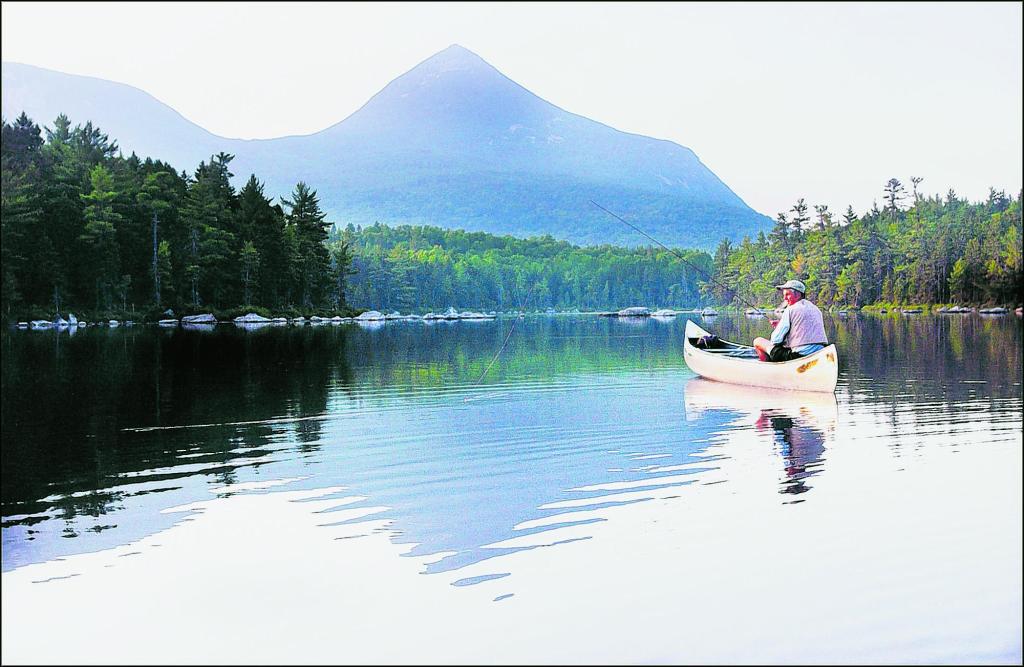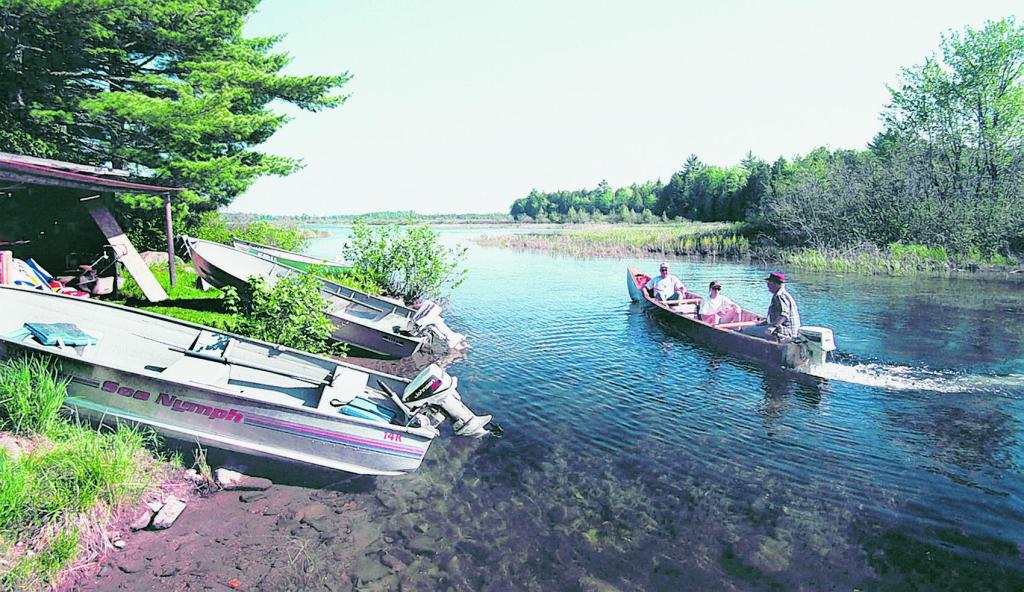A new fishing law that goes into effect April 1 will change the face of freshwater fishing in Maine when virtually all waters in southern and eastern Maine become legal for year-round fishing.
The idea is to provide as much opportunity as possible in stocked waters across the southern half of the state.
Open-water season, as it is currently known, will cease to exist in the 11 southern and eastern counties as well as the southern half of Oxford County. Instead, fishermen will be able to fish virtually any way they choose any time of year on lakes and ponds. The new law applies only to lakes and ponds, not rivers and streams, which have separate regulations that have changed little.
In the northern half of Maine – in Aroostook, Piscataquis, Somerset and Franklin counties as well as the northern half of Oxford County – fishing seasons will remain the same. Ice fishing season will run from January through March and the open-water season will run from April to the end of August on most waters. State biologists won’t liberalize fishing regulations up north in order to protect the state’s prized native brook trout fisheries there.
But in the rest of the state in two weeks, the change takes effect.
“It’s a huge change,” said Francis Brautigam, a southern Maine fisheries biologist with the Department of Inland Fisheries and Wildlife. “It’s been well over a year in the works. The reality is we do a lot more stocking in the lower 12 counties than we do in the northern part of the state, where there are a lot more wild fisheries. You’re dealing with different management.”
In a typical year in southern Maine, the new law will mean a boom in fishing activity, Brautigam said.
This winter is a classic example of how fishermen can be robbed precious fishing time by Mother Nature. In many areas of southern and central Maine, the ice has not been safe for fishing during March – or for that matter, February in some areas.
“It means some sort of fishing can be done somewhere 365 days of the year,” said Bobby Van Riper, head biologist in central Maine for IFW. “Right now when I get a call asking, ‘Where can I go?’ I say, ‘Go north.’ I taught a workshop in Farmington last week. They still have 2 feet of snow. But if you’re in Portland, it’s spring.”
Unfortunately, the new law won’t even be noticed this spring because there has been open water for weeks in southern Maine. But in the future during typical Maine winters, ice fishermen will be able to play right into April.
The only place in the state’s new southern region where ice fishing in April might be possible this year is Penobscot County, but IFW biologist Nels Kramer in the Enfield office said it’s not likely to happen even there.
“We’re having a hard time getting on Cold Stream Pond (in Enfield) in the middle of March. This is not a good year to experience where ice fishing will be allowed in April,” Kramer said. “The average ice-out is April 24. We’re looking for the record ice-out this year. It might be before April.”
If mild temperatures return next winter, fishermen will get to cast and troll from boats next January and February. At least those who dare.
“Some people will tough it out. Especially at the beginning, they’ll do it as a novelty. Although, that will be awful cold trolling around on Tunk Lake in February,” said IFW biologist Greg Burr in the Down East region.
Obviously, the age-old question of whether the ice is safe will become more of a concern.
“You’re really going to have to pay attention if you go out there early (next winter). People are just going to have to use common sense,” Burr said.
The new law also eliminated the five-fish daily limit and replaced it with a species-specific bag limit in the new southern zone. That means, theoretically, a fisherman could keep eight fish if he caught two brook trout, two browns, a pair of lake trout and two salmon. But biologists doubt that will happen.
“Theoretically, you could catch and keep more fish, but not everyone is into harvesting,” Brautigam said.
As big a change as this comprehensive new law is, state fisheries biologists suspect these changes are not widely known.
But news should catch on fast as fishermen are seen in funny places they haven’t fished before.
“Whatever weather Mother Nature wants to dish out, the regulations are more flexible so fishermen can take advantage of conditions,” Brautigam said.
Staff Writer Deirdre Fleming can be contacted at 791-6452 or at:
dfleming@pressherald.com
Send questions/comments to the editors.





Comments are no longer available on this story